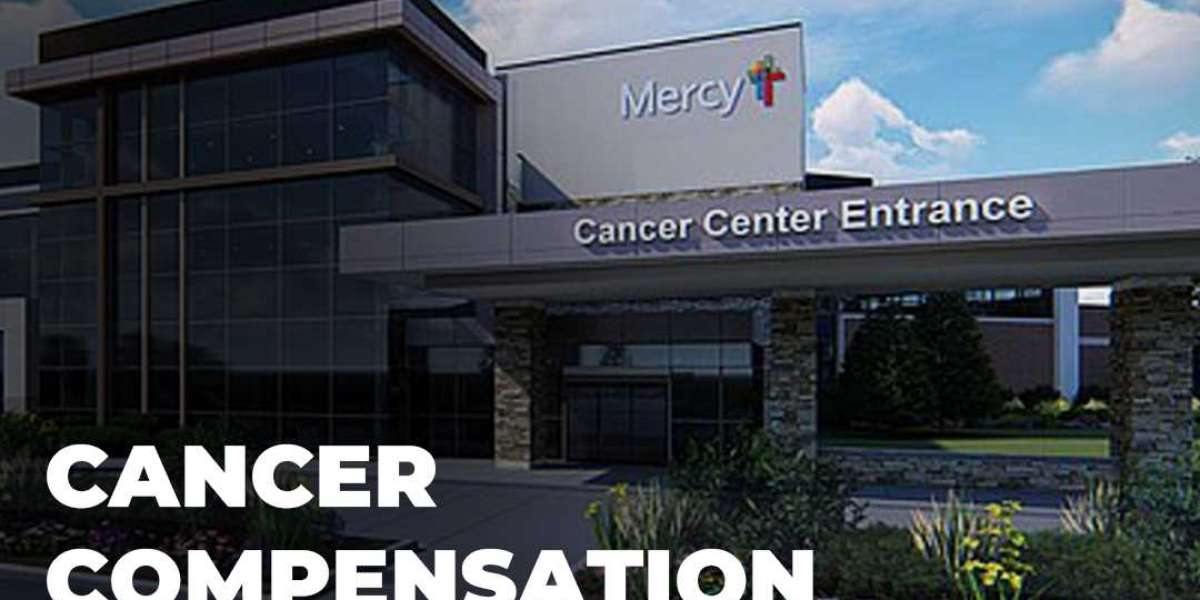Understanding Cancer Compensation in Arkansas
Cancer compensation in Arkansas typically falls under two major categories: workers' compensation for work-related cancer and personal injury lawsuits for cancers caused by other forms of negligence. Depending on the circumstances of the diagnosis, victims may be entitled to compensation from their employers, insurance companies, or other liable parties. Knowing which legal path to take is crucial to building a strong case.
Workers' Compensation for Cancer in Arkansas
Workers' compensation in Arkansas offers benefits to employees who suffer injuries or illnesses due to their job. This includes certain types of cancer, particularly when they are directly related to workplace conditions or hazardous exposure. Many people may not be aware that their job could be a factor in their cancer diagnosis, especially if they have worked around toxic substances, such as asbestos, chemicals, or radiation.
Eligibility for Workers' Compensation in Cancer Cases
Eligibility for workers' compensation claims in cancer cases typically depends on whether the cancer can be linked to job duties or work environment exposure. In Arkansas, employees who are exposed to harmful substances over time and later develop cancer may be able to file for workers' compensation benefits. The challenge, however, often lies in proving the connection between the workplace and the cancer diagnosis.
Certain professions, such as construction workers, miners, factory employees, or those in agriculture, may be at higher risk due to consistent exposure to dangerous materials like asbestos, benzene, and pesticides. Arkansas law protects these workers, but gathering evidence is key to a successful claim.
Filing a Workers' Compensation Claim for Cancer in Arkansas
Filing for workers' compensation in Arkansas involves several critical steps:
Notification: Informing the employer about the diagnosis and suspected link to work is crucial.
Medical Evidence: Solid medical evidence is required to establish that the cancer resulted from workplace exposure. This often involves thorough documentation from doctors, oncologists, and workplace safety reports.
Legal Assistance: Seeking the help of an attorney experienced in workers' compensation law can greatly improve the chances of success. They can help gather necessary evidence and navigate the complex claims process.
The compensation may include coverage for medical bills, lost wages, rehabilitation, and, in some cases, a lump-sum settlement for permanent disabilities or terminal illnesses.
Common Work-Related Cancers in Arkansas
While many cancers have genetic or lifestyle causes, some are directly linked to occupational exposure. These are often referred to as occupational cancers. In Arkansas, some of the most common work-related cancers include:
Mesothelioma: Caused by exposure to asbestos, which was commonly used in construction and manufacturing industries.
Lung Cancer: Linked to the inhalation of hazardous materials like asbestos, silica dust, or chemicals such as benzene.
Bladder Cancer: Associated with exposure to industrial chemicals or solvents.
Leukemia: Often linked to exposure to benzene, a chemical used in the oil and chemical industries.
Workers diagnosed with these cancers may be able to receive compensation if their job contributed to their illness.
Legal Options Beyond Workers' Compensation: Filing a Cancer Lawsuit in Arkansas
While workers' compensation is a key avenue for those with job-related cancer, it may not always cover all the needs or situations where cancer arises from negligence outside of the workplace. In cases where the cancer was caused by exposure to dangerous chemicals, environmental hazards, or defective products, filing a personal injury lawsuit or product liability claim can be another option.
Pursuing a Cancer Lawsuit in Arkansas
If someone’s cancer is due to the negligence of a third party, such as a manufacturer or landlord, legal action may be taken to recover damages. Unlike workers' compensation, which typically limits damages to medical expenses and lost wages, a lawsuit allows the victim to seek compensation for pain and suffering, emotional distress, and punitive damages.
Mesothelioma lawsuits are one of the most common cancer-related claims in Arkansas, often linked to asbestos exposure from older buildings or industrial sites. Many companies have been held liable for failing to protect workers or residents from known carcinogens.
Compensation from Cancer Lawsuits
Compensation from a successful lawsuit can cover a wide range of costs, including:
Medical Bills: Past, present, and future medical expenses related to cancer treatment.
Lost Wages: Both current lost income and future loss of earning capacity if the cancer impairs the ability to work.
Pain and Suffering: Non-economic damages for physical pain, mental anguish, and loss of quality of life.
Punitive Damages: In cases of extreme negligence or willful wrongdoing, the court may award additional damages to punish the responsible party.
Statute of Limitations for Filing a Cancer Lawsuit in Arkansas
It’s important to note that Arkansas law imposes a statute of limitations on personal injury claims, including those involving cancer. Generally, individuals have three years from the date of diagnosis or discovery of the illness to file a lawsuit. This time frame can vary depending on the specifics of the case, so it’s crucial to consult an attorney promptly to avoid missing critical deadlines.
Financial Support for Cancer Patients in Arkansas
Aside from legal avenues, Arkansas offers additional resources and support for cancer patients struggling with the financial burden of their illness. Many nonprofit organizations and government programs provide assistance with medical bills, transportation, and other expenses.
Nonprofit Organizations Supporting Cancer Patients
Several organizations in Arkansas work to support cancer patients, helping them navigate the financial and emotional challenges of their diagnosis. Some of these include:
American Cancer Society (Arkansas Chapter): Provides resources, financial assistance, and support groups for cancer patients and their families.
Cancer Support Community of Arkansas: Offers free emotional and financial support to those battling cancer.
Arkansas Cancer Coalition: Works to reduce the cancer burden in the state and provide advocacy for patients seeking compensation or treatment assistance.
Government Assistance Programs for Cancer Patients
Patients may also qualify for Medicaid, Medicare, or other government programs that help cover the cost of cancer treatment. Additionally, Arkansas residents may benefit from Social Security Disability Insurance (SSDI) if cancer has rendered them unable to work.
Frequently Asked Questions
What cancers are commonly linked to workplace exposure in Arkansas?
Cancers such as mesothelioma, lung cancer, bladder cancer, and leukemia are commonly linked to occupational exposure in Arkansas due to hazardous substances like asbestos, benzene, and industrial chemicals.
How do I prove my cancer is work-related for a compensation claim?
Proving that cancer is work-related requires medical documentation, workplace safety reports, and expert testimony linking the exposure to the diagnosis. Consulting with an attorney can strengthen your case.
Can I file both a workers' compensation claim and a personal injury lawsuit?
In some cases, yes. Workers' compensation is typically filed for job-related illnesses, while a personal injury lawsuit may be pursued if a third party's negligence contributed to the cancer.
What is the statute of limitations for filing a cancer lawsuit in Arkansas?
In Arkansas, individuals generally have three years from the date of diagnosis or discovery of their cancer to file a lawsuit. It’s important to act quickly to avoid missing the deadline.
What financial assistance is available for cancer patients in Arkansas?
Patients may qualify for workers' compensation, personal injury claims, nonprofit assistance, or government programs like Medicaid, Medicare, and SSDI, which can help cover medical and living expenses.
Do I need a lawyer to file for cancer compensation in Arkansas?
While it’s not legally required, having an attorney who specializes in workers' compensation or personal injury law can significantly increase your chances of receiving fair compensation.
Conclusion
Cancer compensation in Arkansas offers vital financial relief for patients who face the overwhelming costs associated with their illness. Whether through workers' compensation or personal injury lawsuits, individuals have legal options to seek support. Understanding the eligibility criteria, filing processes, and legal timelines is crucial for a successful claim. For anyone battling cancer, Arkansas has resources in place to help ensure that you don't have to face this fight alone.
Search
Popular Posts
-
 上海狗友吸尘器哪个牌子好
By hthtgthh
上海狗友吸尘器哪个牌子好
By hthtgthh -
 Ваш диплом без лишних забот: быстро и безопасно
By worksale
Ваш диплом без лишних забот: быстро и безопасно
By worksale -
 Как можно будет быстро приобрести аттестат в онлайн магазине
By sonnick84
Как можно будет быстро приобрести аттестат в онлайн магазине
By sonnick84 -
 Как выбрать надежный интернет магазин, реализующий дипломы?
By sonnick84
Как выбрать надежный интернет магазин, реализующий дипломы?
By sonnick84 -
 Желаете купить по отличной стоимости аттестат или же диплом?
By sonnick84
Желаете купить по отличной стоимости аттестат или же диплом?
By sonnick84



